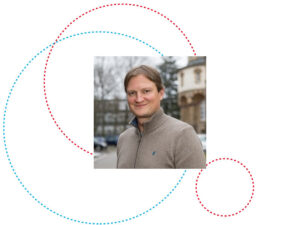Alexandre Tkatchenko, professor of theoretical chemical physics at the University of Luxembourg, has been awarded a Proof-of-Concept grant from the European Research Council (ERC) to develop a novel chemical discovery platform.
The grant supports the development and preparation for commercialisation of “Chemical Space Machine” – a platform for chemical modelling that combines molecular quantum mechanics and artificial intelligence (AI).
Name your molecule
Computational design and discovery of molecules and materials relies on the optimisation of several molecular properties in very large chemical spaces. Current approaches usually start from commercially available libraries of compounds from various suppliers, which are restricted in chemical diversity. Today, the discovery and design of chemicals with tailored properties, such as new drugs, antivirals, antibiotics, catalysts or battery materials, require a fundamental paradigm shift in searching unchartered swaths of the vast chemical space.
To enable this shift, Prof. Tkatchenko and his research team invert the selection pyramid of chemical design, by starting with pre-defined parameters from which new chemical entities are designed through reliable molecular quantum calculations and AI-enabled algorithms. This will be accomplished by integrating research advances done within the research team during the last decade into a commercial platform: “Chemical Space Machine”. During the next 18 months, the research team will finalise the development of a test version of “Chemical Space Machine” and set up its potential commercialisation strategy.
“Recent research in our field enables expedient searches of novel molecules in vast chemical spaces. Now we are ready to put this technology to use to answer molecular design questions in chemical and pharmaceutical industries. We will work together with our industrial partners towards enabling the ‘chemical discovery revolution’”, says Alexandre Tkatchenko.
“The ERC POC grant to develop a novel chemical discovery platform illustrates the high quality of the University’s research work in strategic areas such as chemistry and artificial intelligence. Congratulations to Alexandre Tkatchenko for this success,” says Prof. Stéphane Pallage, Rector of the University.
“This POC grant is a prime example of how excellent fundamental research can lead to highly innovative applications that might have a transformative effect on key industries,” says Prof. Jean-Marc Schlenker, Dean of the Faculty of Science, Technology and Medicine.
Years in the making
Proof-of-Concept (POC) grants are awarded to forward-thinking research projects which have the potential to be commercialised, and it supports scientists in finalising and marketing the product. The POC grant is only awarded to researchers having previously earned a frontier ERC Grant, which Prof. Tkatchenko obtained in 2017 (ERC Consolidator Grant “BeStMo” to investigate complex molecular dynamics.
By modelling quantum fluctuations in complex molecular structures, Prof. Tkatchenko and his team from the Department of Physics and Materials Science developed a set of machine-learning and physics-based methods to model materials composed of thousands of atoms. With such methods, other researchers and industrial users can calculate and predict the behaviour of large molecular structures with unprecedented accuracy and efficiency.
The methods developed by Prof. Tkatchenko and his team are used by thousands of researchers and companies worldwide for advancing the understanding of properties and interactions in molecules and materials.
The full ERC Proof-of-Concept grantees can be found on the ERC website.
